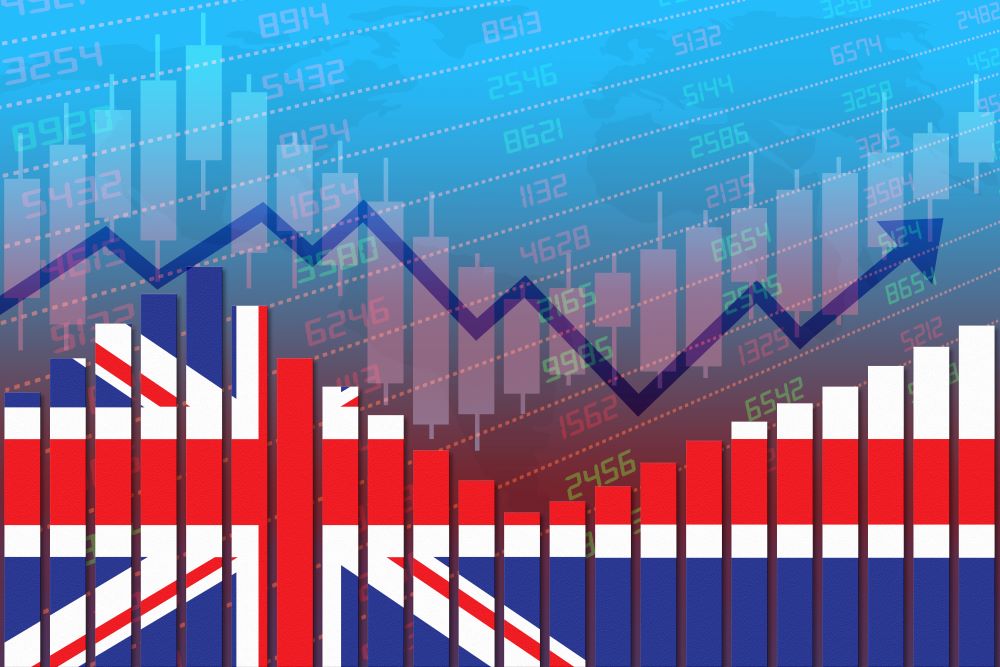
The latest raft of economic data has painted a mixed picture for the UK economy, with inflation falling and a recession narrowly dodged, but trade and business still facing challenges.
Here, the IOE&IT Daily Update presents some of the latest economic news.
UK navigates recession
“We are not out of the woods yet,” warned chancellor Jeremy Hunt after the UK narrowly avoided a recession last week (10 February).
As reported by the Guardian, a decline in GDP in December was offset by growth in the previous two months, leaving the UK economy at roughly the same level as the third quarter of 2022.
The most common definition of ‘recession’ is usually considered to be at least two consecutive quarters of economic contraction, although the Office for National Statistics (ONS) notes that this is not official.
Overall, the UK economy is 0.8% below its pre-pandemic peak in 2019, in contrast with the US and EU, which have returned to growth.
The IMF is predicting that the UK economy will shrink by 0.6%, standing in stark contrast to the US and EU, both of which are expected to grow in 2023.
Inflation growth slowing
UK price inflation fell for the third month in a row to 10.1% in January from 10.5% in December, ONS figures show.
Decreases in fuel prices and the cost of dining out helped bring down the rate which nevertheless still remains in double digits, reports the BBC.
Grant Fitzner, chief economist for the ONS, said there were signs costs facing businesses were “rising more slowly”, but warned “business prices remain high overall”.
Reuters reports that despite the fall, inflation remains higher than in the US or euro zone, and forecasters think it will stay higher as a result of acute labour shortages and constraints.
Earlier this month, the Bank of England said it saw signs that the surge in consumer prices had turned a corner and suggested it was close to ending its recent run of interest rate hikes.
Wage growth
UK wage growth accelerated more than expected in the three months to December but remained below inflation, according to official statistics.
Growth in regular pay rose to an annual rate of 6.7% in the final three months of 2022, up from a revised figure of 6.5% in the three months to November, reports the FT.
The ONS said it was the strongest regular pay growth rate since records began in 2001, excluding the pandemic period.
According to Economics Observatory, the UK employment rate rose by 0.2% to 75.6%, with the unemployment rate increasing by 0.1% to 3.7%.
FTSE high
London’s FTSE 100 has exceeded the 8,000 point mark for the first time ever, despite a mixed economic outlook.
A greater gearing toward industrial stocks, which have benefited from a sharp rise in energy prices last year and an expected burst in commodity demand from China’s economic reopening, has propelled the new highs.
However, AJ Bell investment director Russ Mould warned UK Investor Magazine that despite the gains, “the confidence that remains is about as fragile as a fine china cup”.
Global rebound
According to a report from McKinsey, despite last year’s high inflation and energy uncertainty, world economic performance in 2022 almost certainly exceeded more pessimistic expectations, with growth estimates for 2023 and 2024 being less dire.
Upgraded forecasts from the IMF suggest that the pace of global GDP growth in 2022 was 3.2%.
Although a slowdown of short duration is predicted for 2023, there will be a rebound in 2024.
India, China and other emerging economies are expected to see “robust” growth in 2023.



